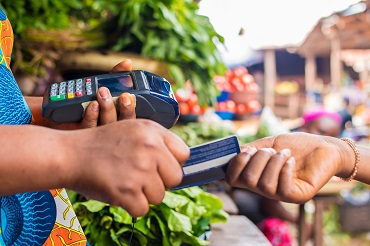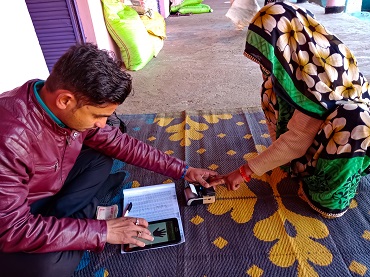Blog
Blog - What should be the first immediate steps that banks should do to help SMEs?

Lessons from “SME Banking Coffee: Online Session Series on Partnerships #1 & the Impact of COVID-19 on SME Banking*. EFMA
In the first of three “SME Banking Coffee” series, organized by EFMA, the discussion turned around SME banking partnerships. Convening Lukas Dzuroska, from EFMA; Adi Engel from vCita; Esra Kivrak from Commercial Bank of Qatar (CBQ); and Marcus O'Toole from Mastercard, the session provided insight into the partnering experiences of the speakers and offers us all a glimpse of another tool to explore in support of the SME segment.
Marcus O'Toole, VP Head Small Business Segment Solutions Europe at Mastercard, opened the conversation with examples of partnerships within similar niches (Uber eats and McDonald's), and others from different segments (Montblanc and BMW). For Mastercard, partnerships have always played an integral role in their SME strategy. From turning every connected device into a commerce device to capacity building tools, Mastercard has a history of collaborations with large and small companies from different sectors, helping small enterprises to meet their financial (e.g., managing cash flow and payments) and business needs (e.g., managing operations, utilizing technology and growing their business). One of those partners is vCita.
Second to present was Adi Engel, CBDO at vCita, a business management and client engagement enterprise that offers an online CRM to manage all client communications. Adi explained vCita’s platform and how they realized that “it is not enough to just deliver the tools” but to make sure that they are offering their capabilities to drive change, such that small business owners are learning, through the vCita platform, from the challenges and successes of other entrepreneurs. To help SMEs during the ongoing pandemic, vCita adapted its platform content to mentor SMEs on how to handle the uncertainty and instability of the crisis in terms of employee motivation, team dynamics, client relationships, financial management, and other topics. Likewise, with Mastercard’s support, they launched this tool as an open platform system to help as many SMEs as possible.
The last speaker was Esra Kivrak, Executive SME Senior Advisor at Commercial Bank of Qatar. Esra mentioned research that refers to three strategic roles banks can play in a partnership: as a partner, to orchestrate or to build. She said that given the SME segment can be operationally costly for banks, partnerships with fintech companies can prove essential in providing financial services more easily and at less cost to SMEs, while also offering other non-financial services such as CRM, payment systems, and invoice administration, among others. Finally, she emphasized the importance for banks to have IT, savvy staff, in product development and SME departments. Additionally, IT infrastructure is also something that can be done through collaborations with fintech enterprises.
Lukas Dzuroska, EFMA Country Manager for the Baltics, Nordics, Poland, Turkey, and Georgia led a discussion from an SME perspective, concerning the main opportunities and challenges of partnerships versus creating in-house banking solutions. Marcus, from Mastercard, pointed out the relevance of finding the right partner for any specific solution instead of dealing with multiple partners to address the same solution. This idea was seconded by Adi from vCita, saying that companies should focus on what is within their core expertise and then bring in partners that have core complementary expertise of their own. The second proposition asked for the same opportunities and challenges of partnerships but from a bank perspective. When considering whether to partner or build a solution in-house, a bank needs to consider resources, including the value of all departments and staff time required to build an in-house solution, speed to ROI, effective sales and marketing campaigns and availability of external solutions, among other aspects, to inform a cost-benefit analysis.
For key takeaways, Lukas asked the panelist, in the context of COVID, “What should be the first immediate steps that banks should do to help SMEs?”. From the Mastercard perspective, banks are doing a good job working very closely with governments to implement stimulus packages, rolling out innovative ways to support SMEs and freezing loan payments, among other responses. Mastercard is helping their partner banks in the aforementioned activities, as well as taking advantage of partnerships like the one with vCita in providing learning tools to SME owners. Esra and Adi agreed on the challenge that SMEs are facing in terms of liquidity and cash flow management, but also the need for banks to educate SMEs on financial literacy and how to scale-down in the current COVID crisis but also to prepare to scale-up once the COVID crisis ends.
In closing, Lukas Dzuroska from EFMA shared their website, where they have content related to actions the industry is taking on COVID-19. EFMA has posted more than 30 articles associated with the emergency, and for EFMA members, there is a report Supporting SMEs in a time of crisis.

























